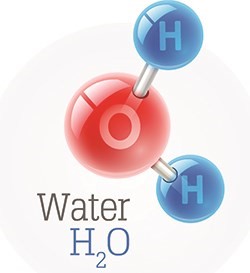Most people would question something called a 100% natural fragrance oil. I know that I always believed that fragrance oils were, by definition, synthetic.
A name is just a label to distinguish one thing from another. But when we see an ingredient labelled “fragrance . . .” on a household or personal care product what does it mean?:
Different Types Of Fragrance
Essential Oils
The essential oils within a plant are Mother Nature’s creations. Powerfully fragrant and concentrated, essential oils are the pure natural aromatic essences from a variety of aromatic plant material including grasses, leaves, flowers, needles, twigs, peels of fruit, seeds, bark, and roots. The chemical profile of an essential oil determines its scent and overall quality.
Essential oils are not only highly therapeutic aromas, but they often provide healing properties or other therapeutic benefits not found in synthetic aromatics.
Synthetic Fragrance Oils
Typical Fragrance Oils are made in a laboratory from synthetic compounds and are composed almost entirely of petroleum by-products such as benzene derivatives, aldehydes, toluene, and other known chemicals. They are much cheaper, offer greater variety, and utilize scent binders like phthalates to help retain their aroma for a longer period of time. Chemists can create lovely scents produced through chemical reactions that have no corresponding scent in nature. Synthetic fragrance oils are completely human-made from chemical compounds that do not exist in nature.
The words “Nature Identical” are quite deceiving since these oils are also completely or partially synthetic. The oils may be built totally from materials that are not natural or they may be blends of natural essential oils and synthetic aromatic compounds.
The difference between creating a “Nature Identical” fragrance oil and synthetic fragrance oil is that in the end, the Nature Identical Oil has a chemical structure that is the same as its essential oil counterpart. It is basically a man-made copy of a molecule found in nature.
These scents are often listed as “fragrance,” “parfum,” or “nature-identical” oils on the ingredients list. There are some fragrance oils that may contain a small percentage of essential oils. However, the addition of a little bit of essential oil does not mean they are natural.
Natural Fragrance Oils
Natural Fragrance oils are also made in a laboratory but rather than being made from synthetic materials they are created by isolating one of the natural aromatic components from a complex scent such as that of an orange or rose. These single scents are called isolates.
A natural isolate is a single chemical, isolated from a plant, that has a smell. It is a part of something real rather than man-made from another material. Natural fragrance oils are blends of isolates that are extracted through the same processes that are used to get essential oils. The difference is that …
For a very simple example, a water molecule is H2O, meaning it is 2 parts hydrogen and 1 part oxygen. So if we could pull out the hydrogen it would be an isolate of water. We could then use that hydrogen to make or build some other compound.
